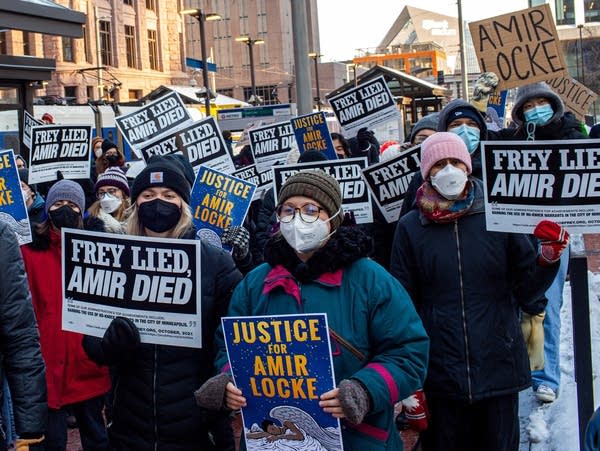Frey, experts promise warrant changes in 'weeks, not months'

More than 1,000 people march through downtown Minneapolis on Feb. 5 in response to the police killing of Amir Locke three days earlier. Mayor Jacob Frey said in the briefing with reporters Wednesday that he wants to create a new warrants policy within a matter of “weeks, not months.”
Nicole Neri for MPR News file
Go Deeper.
Create an account or log in to save stories.
Like this?
Thanks for liking this story! We have added it to a list of your favorite stories.


